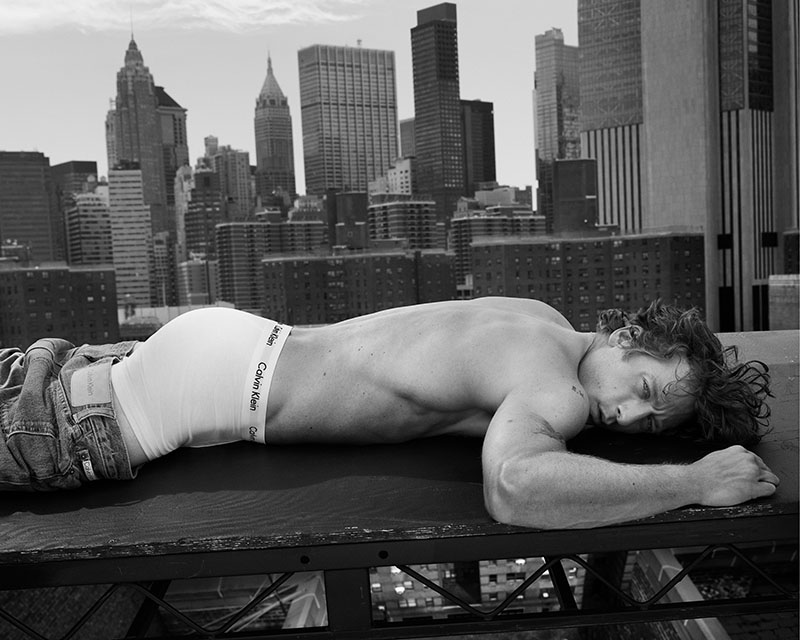LONDON — Calvin Klein is restructuring its European operations and laying off staff in the Amsterdam office as the focus shifts back to the U.S. and to a new global structure.
The job losses will hit design, product development and some other creative areas, according to industry sources familiar with the company. It is understood that around 100 jobs will be eliminated between May and August as part of organization changes that took place last November.
A spokeswoman for Calvin Klein‘s parent PVH Corp. confirmed there would be layoffs, but she did not specify the number. She said that in addition to “workforce reductions,” certain job descriptions have changed to reflect new or different responsibilities, while new roles have been created.
The changes, she added, are part of a wider revamp of the Calvin Klein business under Eva Serrano, who joined the company last March as global president reporting to Stefan Larsson, chief executive officer of PVH.
Last November, Calvin Klein had already announced plans to expand the capabilities of its global product teams in New York, where the brand was born 56 years ago.
The European restructuring “will allow the brand to create stronger products for all regions, unify our strengths to win in the marketplace, and enable a strong and consistent brand image that cuts through with the consumer,” said the PVH spokeswoman.
She added that while the job reductions were necessary, “any decision that impacts our people is always the most challenging for an organization to make, and it is not taken lightly. We are providing support for our associates through the transition process.”
The Europe, Middle East and Africa region, she argued, is one of PVH’s biggest and most important growth markets, and Amsterdam will continue to be hub for the wider PVH business, and Tommy Hilfiger.
“We continue to invest across both Tommy Hilfiger and Calvin Klein to outcompete in this market. We are confident we are taking the right steps to capture the untapped growth potential of our brands and be competitive for the future.
“Our vision is to build Calvin Klein and Tommy Hilfiger into the most desirable lifestyle brands, and make PVH one of the highest performing groups. In executing this vision, Amsterdam plays a significant role as both our regional EMEA headquarters, and as the global headquarters for our Tommy Hilfiger brand.”
As reported, Larsson has been refocusing the company with his PVH+ Plan, which zeroes in on “hero” products, consumer engagement, online and a demand-and-data-driven operating model and efficiencies.

In North America, Larsson is currently transitioning out of the company’s long-standing licensing relationship with G-III Apparel Group and will be taking the wholesale women’s apparel businesses of Calvin Klein and Tommy Hilfiger in the U.S. and Canada in-house by 2027.
Calvin Klein has had an eventful start to the year.
Separately, on Wednesday, the U.K. Advertising Standards Authority ruled that a Calvin Klein ad featuring FKA Twigs objectified the singer and “must not appear again in the form complained of.”
The ad had originally appeared last April as part of a wider poster campaign that also featured Kendall Jenner.
The ASA said it had received two complaints specifically about the image of FKA Twigs, a British singer, songwriter, and dancer whose real name is Tahliah Debrett Barnett.
Having looked closer at the campaign, the advertising watchdog said it featured “images of women who were sexualized, to a degree.”
It added that the singer’s partial nudity “and facial expression, including a direct gaze and open mouth, gave the image an overall sexual overture. We therefore considered the ad overtly sexual and not suitable for display in an untargeted medium.”
In its ruling, the ASA told Calvin Klein Inc. “to ensure that future ads did not irresponsibly objectify women.”
For its part, Calvin Klein Inc. had argued the ads were similar to ones they had been publishing in the U.K. for many years.
According to the ASA, Calvin Klein described itself a “pioneering and progressive brand that engaged in a range of equity and equality focused partnerships.”
The American brand argued that the ads did not overly sexualize the women, and were not irresponsible. “Both models had collaborated with Calvin Klein to produce the images and had approved them before publication,” Calvin Klein told the ASA.



